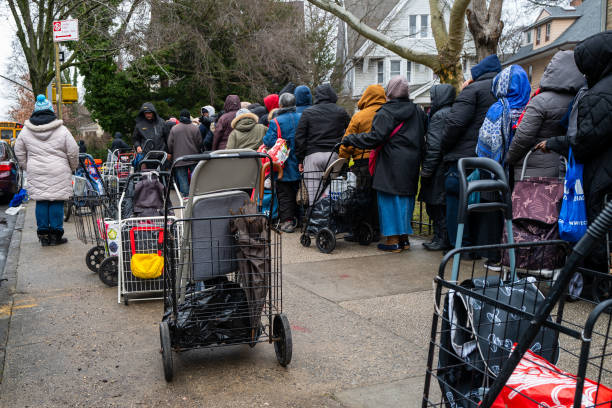(ThyBlackMan.com) For those of us who are not living in poverty, we may not fully understand the plight suffered by those who are poor. Unless we have been there ourselves, we cannot understand life and survival totally from their perspective. This is true despite having degrees of empathy and compassion. It takes a lasting moral commitment to become sensitive to recognizing and addressing the systemic barriers that keep people impoverished. However, we can never intimately relate to the hardships without experiencing them.

Breaking the cycle of poverty means that discrimination and racism need to be discerned and confronted at every turn. Breaking the cycle of poverty means addressing the root causes, such as lack of access to housing, education, healthcare, transportation, and economic opportunities. Insight into these challenges will enable fair-minded policymakers to propose effective social programs and economic policies that will provide a reliable safety net, reducing suffering. In doing so, these lawmakers are fulfilling a moral and social responsibility by addressing the root causes of poverty. Unfortunately, not all policymakers are fair-minded and moral. While immoral lawmakers may also have a degree of insight, they have proven to be strategic and proactive in crafting ways to cut the social safety net.
Many of us are not in a situation where we have to deal with the issue of family remittances. Millions of migrants support their families and communities of origin through the money they send back home (remittances). Remittances impact 1 in 8 people worldwide. About 200 million immigrant workers support 800 million family members in their home countries each year. While Haitian immigrants face economic challenges, they continue to send a significant portion of their earnings home, often at a personal sacrifice by working multiple jobs or foregoing their own needs to support relatives abroad. “Haiti is literally being held together by those of us who are outside of the country and sending money back home,” said Guerline Jozef, co-founder of Haitian Bridge Alliance. Haiti’s decades-long humanitarian crisis deepens each day, forcing immigrants to send record-high payments back home in recent years. Each Haitian immigrant living abroad supports a dozen or so friends, family, or community members in their home country, many of whom rely on those payments to survive, Jozef says. Remittances make up a significant portion of Haiti’s economy, representing more than 22% of its GDP. For many families, it determines whether children can attend school.
While the pain resulting from the gutting of foreign aid from USAID is still fresh, the recently enacted 1% U.S. tax on cash remittances as part of the “One Big Beautiful Bill” hurts even more. Typically, remittances increase when foreign aid is cut, but that will not be as easy since many countries are hit by cuts in foreign aid and taxes on money transfers. A 1% tax may appear small, but the consequences are massive.
In this case, the specific target of this surcharge will inflict additional emotional and financial pain on people who are already suffering and can least afford another deliberate hit to the safety net, which will disproportionately impact poor families. Most low-income and undocumented migrants use cash-based services such as Western Union, which are subject to the tax, while wealthier individuals who use bank transfers are exempt. Haiti is not alone. In over 60 countries, remittances make up more than 3% of the GDP. In some places, remittances make up over a quarter of the entire economy. Haitians could lose about $61 million annually in direct payments for food, shelter, and healthcare, according to the Center for Global Development. Globally, the losses will amount to approximately $4.5 billion.
Finish story here; The Harsh Reality of Poverty, Remittances, and the 1% U.S. Tax on Migrants.

















Leave a Reply